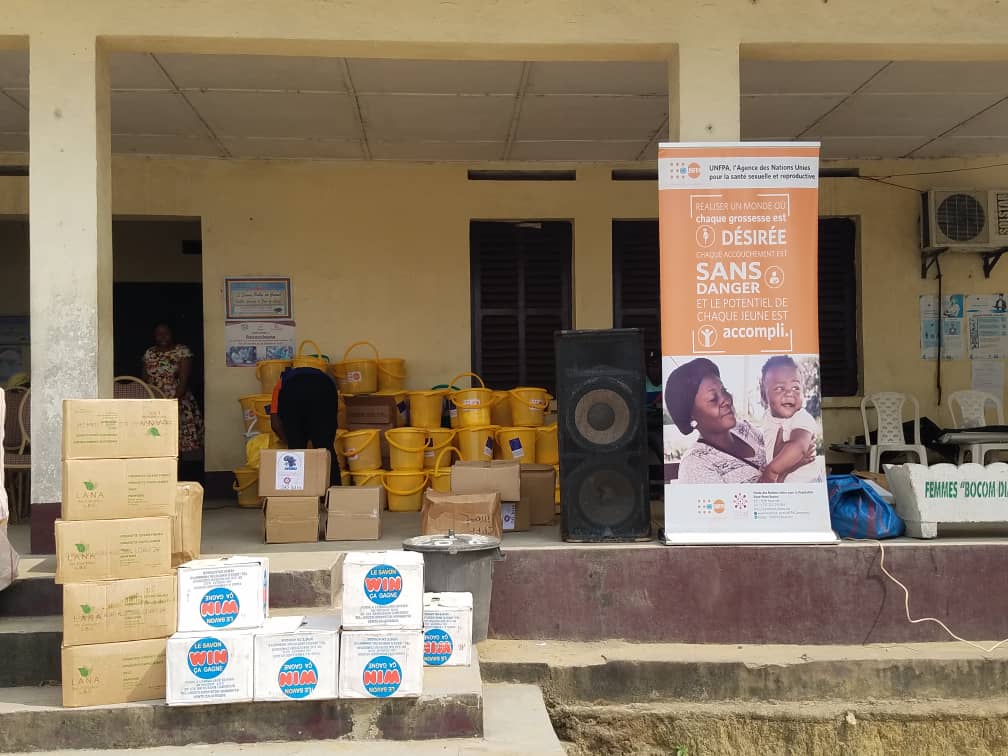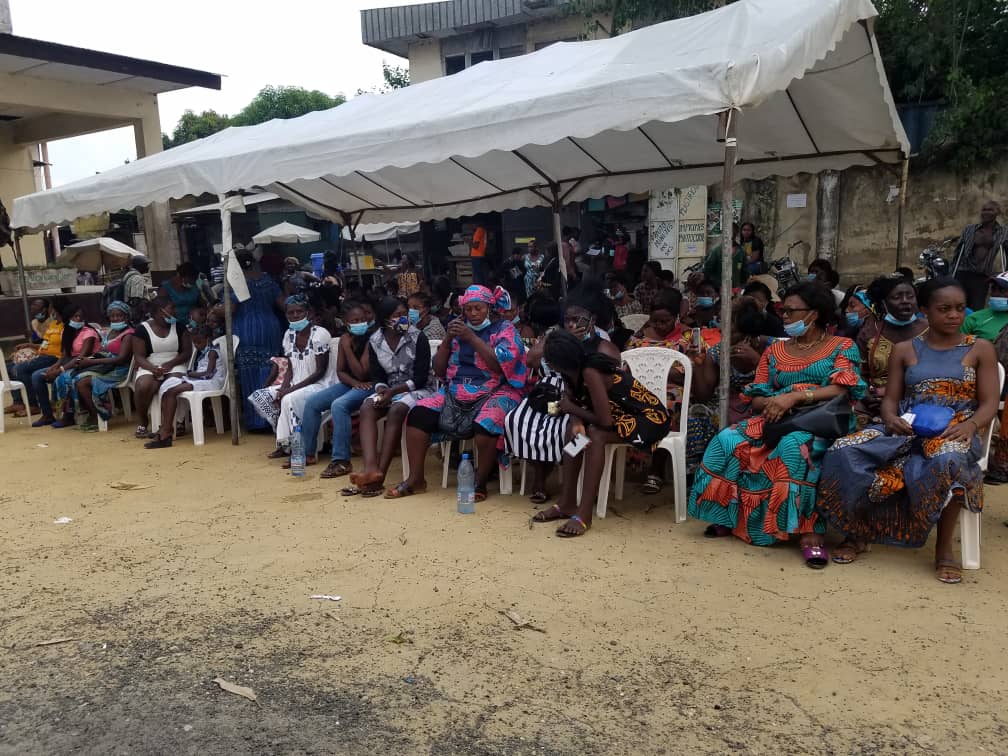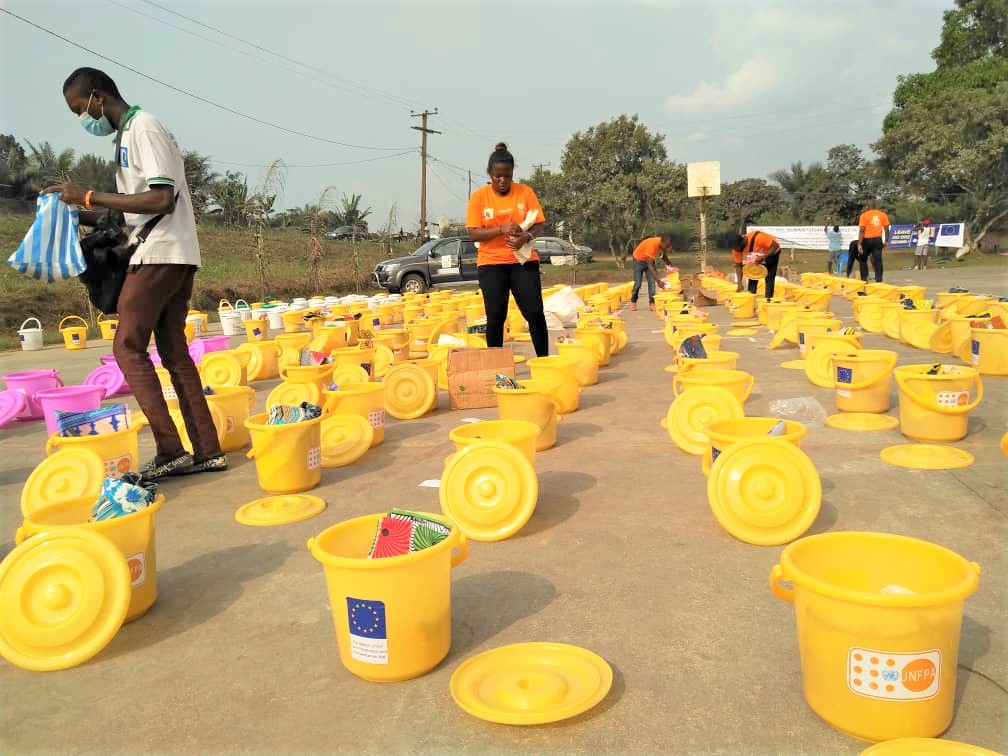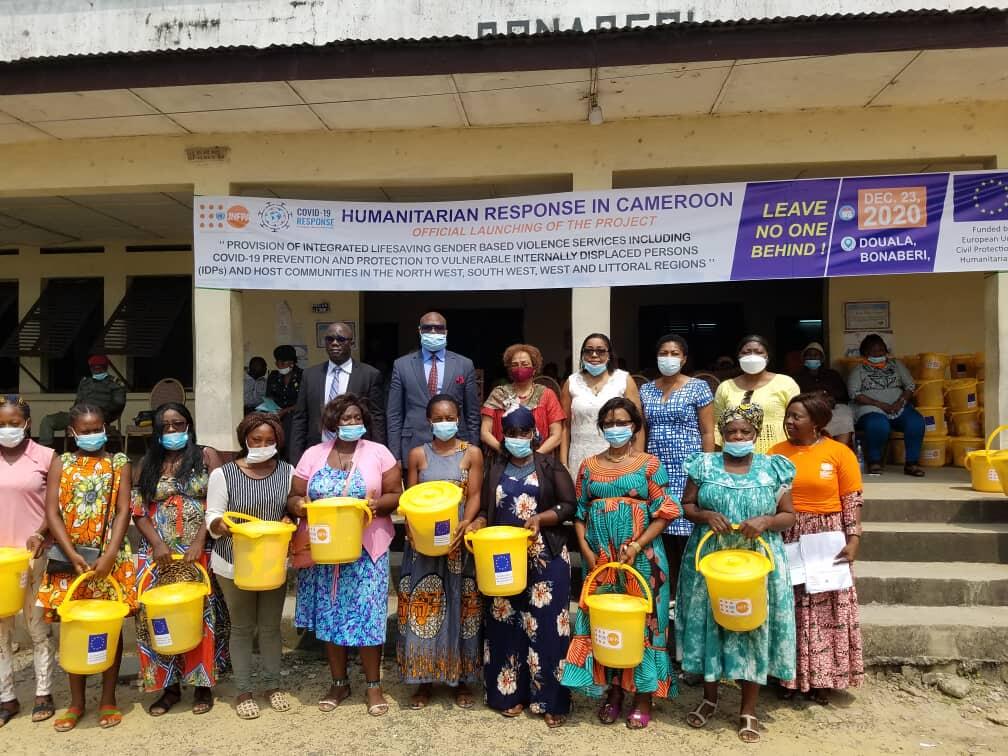
Photo/UNFPA 2020
Thanks to Funding from the European Union (EU) in Cameroon, the United Nations Population Fund will bring its technical expertise to the government of Cameroon in the provision of Gender-Based Violence services and COVID-19 prevention services to both IDPs and host communities of the North West, South West, West and Littoral Regiond of Cameroon.
The Project, titled “Provision of integrated lifesaving gender-based violence services including Covid-19 prevention and protection to vulnerable internally displaced persons (IDPs) and Host communities in the North West, South West, West and Littoral Regions in Cameroon" was officially launched in Bonaberi, Douala on the 23rd December 2020. The ceremony was co-chaired by Mr Bile Pierre Marcel, Head of Cabinet at the Littoral Governor's Office and personal representative of the Governor Samuel Dieudonné Ivaha Diboua, and Siti Batoul Oussein, UNFPA Resident Representative in Cameroon.
The project targets 183, 503 direct beneficiaires and intends to build the capacities of 80 service providers in 20 health facilities to ease access to medical and psychosocial assistance for female survivors of violence while strengthening the capacities of local community to prevent and mitigate the risk of COVID-19 related gender-based violence and stigma. It is said to last 18 months and will go a long way to help survivors develop coping mechanisms against what they went through.

the event. Photo/UNFPA 2020
It is noteworthy, from data provided by UN OCHA, that the current crisis in the North-West and South-West regions has resulted in the displacement of around 200,000 people to the Littoral and the West Regions. About 60% of the displaced people in these regions live with host families and over 50% of them are school-aged children. A GBV rapid need assessment conducted by UNFPA in 2019 revealed that 87% of IDPs declared that they had been subjected to GBV, 52% of which was psychological violence, 21% domestic violence, 13% sexual violence. Since the advent of COVID-19, IDPs have reported having difficulties accessing anti-COVID-19 prevention kits, sanitary kits for monthly hygiene, dignity kits for girls and women, family planning products and maternal health services.
Against this backdrop, the EU and UNFPA re-affirm their commitment to work closely with existing governmental structures such as the Ministry of Women Empowerment and the Family, Ministry of Social Affairs, Ministry of Public Health, Ministry of Youth Affairs and Civic Education, International Non-governmental Organisations and community-based organisations in order to strengthen and reinforce accountability and sustainability of interventions.

be handed over to beneficiaries.
Photo/LUKMEF 2020


